Strep A among Carmarthenshire school scarlet fever outbreak
- Published

Brynaman Primary School has 30 cases of scarlet fever among its pupils
Three cases of invasive strep A have been identified in an outbreak of scarlet fever at a primary school.
Carmarthenshire's Brynaman Primary School has seen 30 reported cases of scarlet fever in its pupils.
Two children were admitted to hospital - one of them to Cardiff's University Hospital of Wales - it is not known if they had invasive strep A.
Public Health Wales (PHW) said the 30 cases occurred over six weeks and were more than would normally be expected.
Sion Lingard, a consultant in health protection for PHW, said: "Invasive Group A Streptococcal disease (iGAS) is a rare complication which usually affects fewer than 20 children in Wales each year.
"Although iGAS is concerning, the majority of these children will recover with proper treatment.
"Parents of children at the school have been reminded of the symptoms of scarlet fever and what actions they should take, including keeping unwell children away from school and seeking medical advice if needed."
Nine children in the UK have died with rare but severe bacterial strep A infections since September.
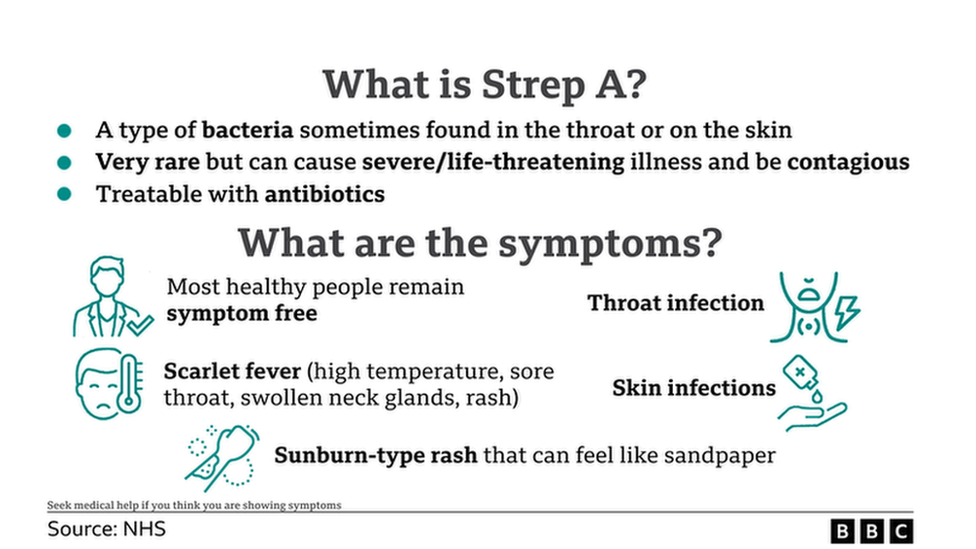
Mr Lingard added that while parents were likely to be worried, cases of iGAS remained rare in Wales, and children have a low risk of contracting the disease.
"We remind the public that cold and flu-like symptoms are also very common at this time of year, especially in children," he said.
"Most will have a common seasonal virus, which can be treated by keeping the child hydrated and with paracetamol.
"We've seen an increase, of 50% for the whole year. What is different this year is that the season's slightly different.
"Scarlet fever circulates every year, usually we get the peak around April/May time, but obviously now we're getting it around November/December time."
He urged anyone whose eligible for their flu vaccine to get vaccinated.
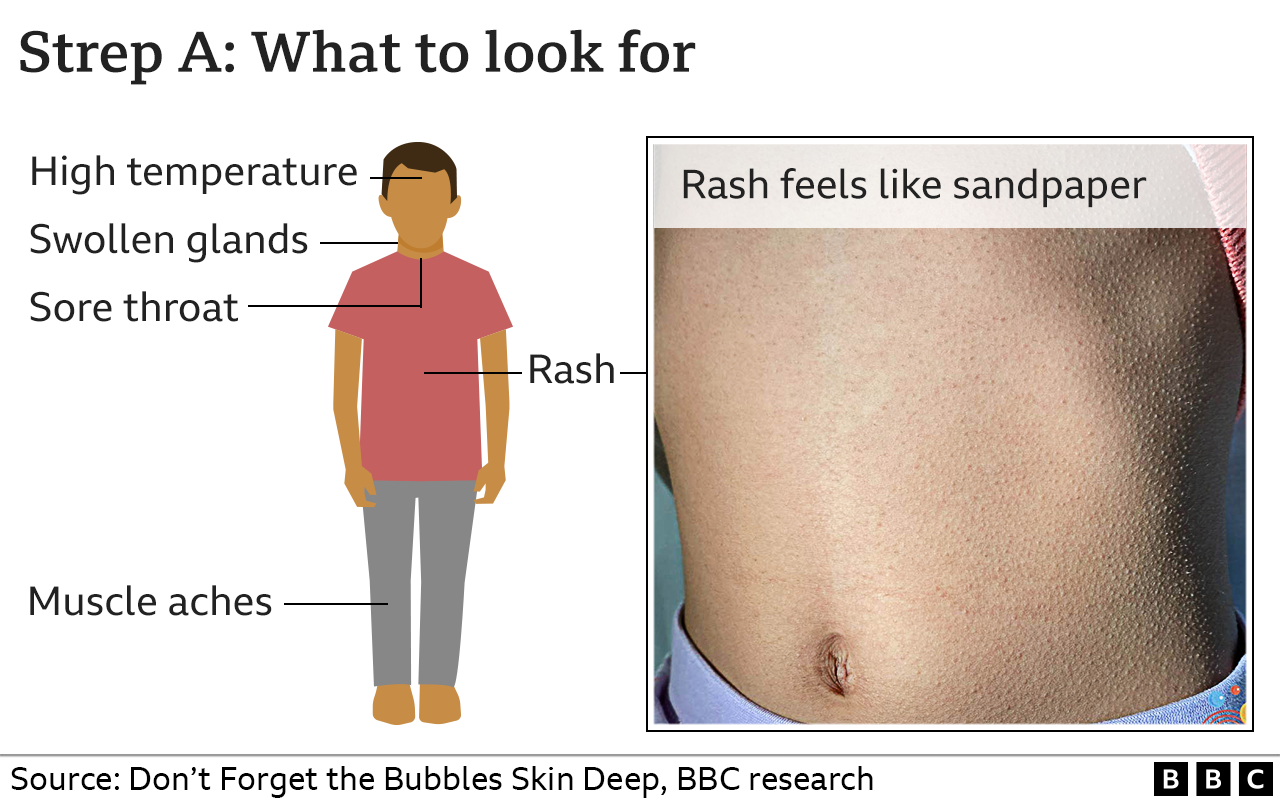
Councillor Glynog Davies said five Carmarthenshire schools had scarlet fever cases, adding that head teachers were given a briefing on Monday and sent a letter from PHW outlining guidelines for schools.
He also said a letter had been sent to parents and carers in the county and if they had concerns about their child's health, they should contact their GP, according to the Local Democracy Reporting Service.
The cases at the 305 pupil-school comes as the Welsh government said the increase in demand for antibiotics used to treat suspected cases of strep A had led to a shortage in some pharmacies.
It said it was working with the UK government to ensure pharmacies have the antibiotics they need to treat suspected cases of strep A.
Health minister Eluned Morgan said: "We're confident that suppliers are working to address any supply issues and if people find difficulty obtaining a prescription locally, they may need to visit a different pharmacy."
On Wednesday, the Royal Belfast Hospital for Sick Children postponed all routine procedures due to the pressures caused by a rise in bacterial and viral infections.

What is scarlet fever?
It is caused by a bacteria group called streptococcus, also known as strep A.
The rash of scarlet fever often begins with small spots on the body which then spread to the neck, arms and legs. It is often sandpaper-like to touch, but is not itchy.
Your child may also have a:
Flu-like symptoms, including a temperature of 38°C (100.4°F) or above
Sore throat/tonsillitis
Painful, swollen glands in the neck
A red tongue (strawberry tongue)
It is a notifiable disease, meaning health professionals must inform health protection teams of suspected cases. This is so they can be treated quickly and possible outbreaks brought under control.
If a parent or carer suspects scarlet fever or invasive strep A infection, they should call their GP or NHS 111 as prompt treatment with antibiotics can prevent serious illness and stop infections spreading.
- Published7 December 2022

- Published9 December 2022
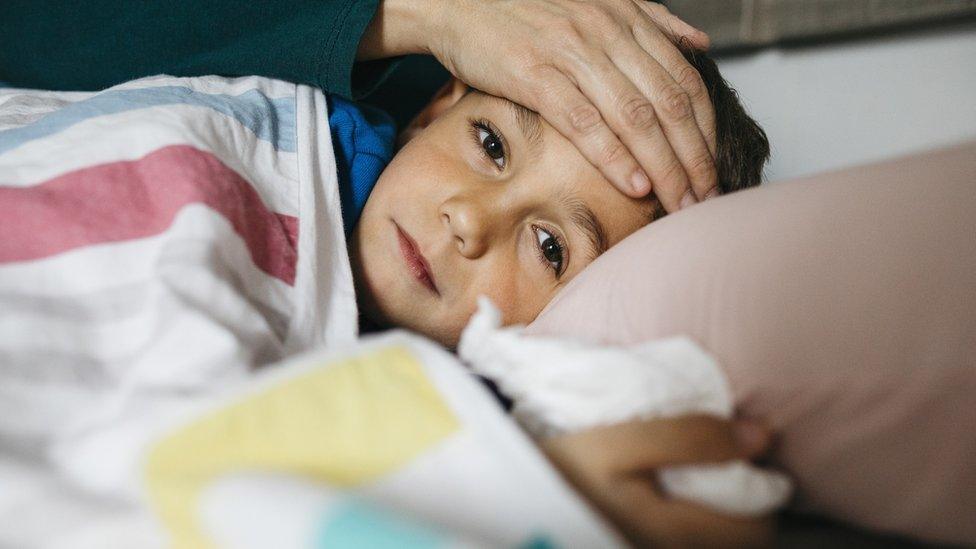
- Published7 December 2022
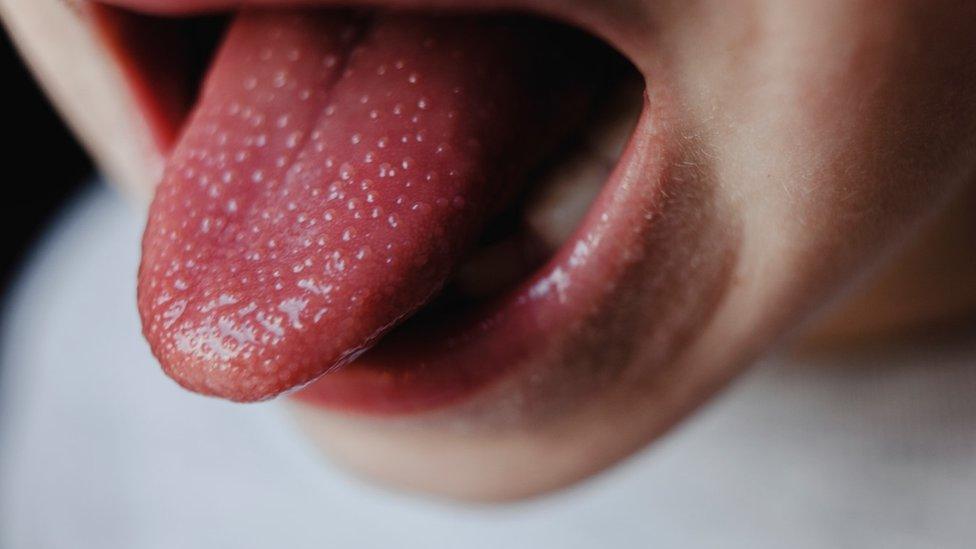
- Published6 December 2022
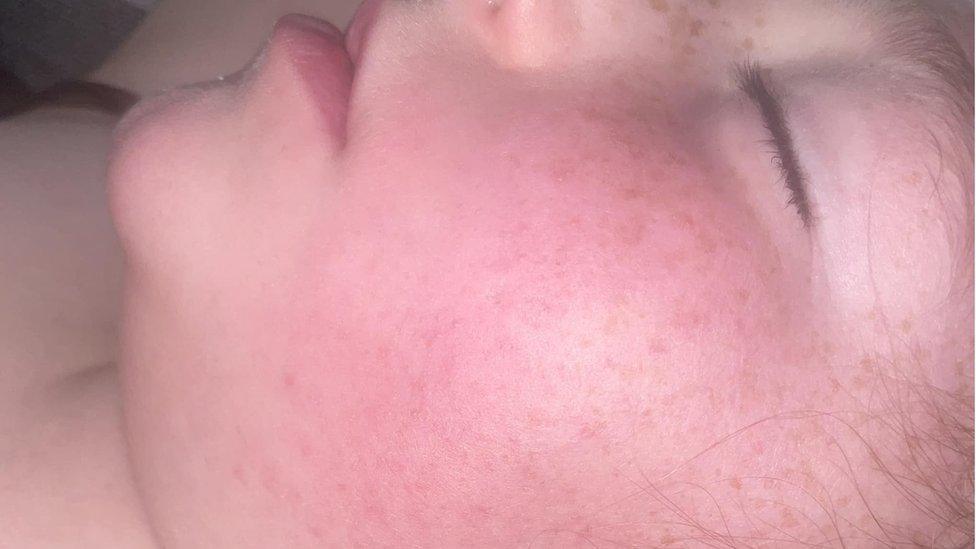
- Published5 December 2022
